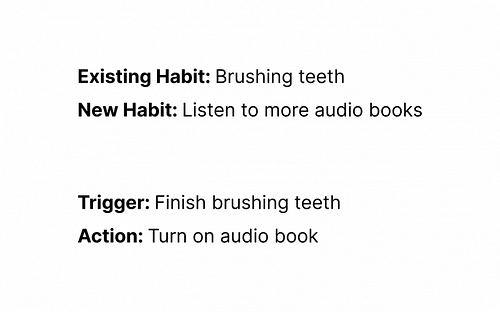Studying abroad can be an incredible opportunity to explore new cultures, make lifelong friends, and gain valuable academic and professional experience. But it can also be overwhelming, with new environments and experiences that can challenge even the most organised and disciplined students. That’s why developing good study habits is crucial for success. In this blog post, I’ll explore the key insights from “Atomic Habits” by James Clear and show you how to apply them to your study abroad experience.
Habits are the Building Blocks of Our Lives
As James Clear writes, “Every action you take is a vote for the type of person you wish to become.” In other words, the small choices we make every day have a significant impact on our lives in the long run. When it comes to studying abroad, this means that the daily habits you develop can make all the difference in your academic and personal success.
Habits are Shaped by Cues, Cravings, Responses, and Rewards
Understanding and manipulating these four elements can help you create and maintain good habits. For example, if you struggle to find the motivation to study, try setting a cue (such as a specific time or location) and a reward (such as a favourite snack or activity) for completing your study session. By connecting the action of studying to a positive reward, you can create a craving for the habit that will make it easier to maintain.
We Should Focus on Improving Our Systems Instead of Setting Goals
Goals are useful, but systems are what help us achieve those goals. In other words, it’s not enough to simply set a goal to get good grades while studying abroad – you need to create a system that will help you achieve that goal. This might include setting a consistent study schedule, finding a study group or tutor, and prioritising self-care to maintain your mental and physical health.
Habit Stacking is a Powerful Technique
Habit stacking involves adding a new habit to an existing routine. This can help you build new habits without disrupting your daily life too much. For example, if you already have a morning routine that includes brushing your teeth and making coffee, try adding a short meditation or stretching session to the routine. By stacking a new habit onto an existing routine, you can create a consistent daily practice that will become second nature over time.

The Concept of “Identity-Based Habits”
The concept of “identity-based habits” is that when we change our self-image, our habits will follow suit. In other words, we should focus on becoming the type of person who already has the habits we want.
For example, if you want to become a successful student while studying abroad, start by cultivating a self-image of yourself as a focused, disciplined, and motivated student. This might include visualizing yourself succeeding academically, finding role models or mentors who embody these qualities, and taking actions that reinforce this self-image (such as joining a study group or seeking out challenging academic opportunities).
Practical Steps to Build Habits That Will Help You Succeed When Studying Abroad
Now that you understand the key insights from “Atomic Habits” and how they apply to studying abroad, it’s time to take action. Here are some practical steps you can take to create habits that will set you up for success:
Set Clear Goals
Before you can build habits that will help you succeed, you need to have clear goals in mind. What do you want to achieve academically while studying abroad? What personal goals do you have for the experience? Write down your goals and make them as specific and measurable as possible.
Identify Your Cue
What will trigger your habit of studying while studying abroad? Will you study after lunch? Before bed? While your roommates are out? Identify a cue that will signal to your brain that it's time to study.
Establish a Routine
Once you've identified your cue, establish a routine around it. Set aside a specific time and place to study every day, and stick to it as much as possible. This will help your brain associate the cue with the habit of studying and make it easier to maintain the habit over time.
Stack Habits
To make it easier to build new habits, try stacking them onto existing habits. For example, if you already have a morning routine that includes getting dressed and making coffee, add a short study session before you start your day. This will help you establish a consistent study habit without disrupting your daily routine too much.
Use Positive Reinforcement
As I mentioned earlier, connecting a habit to a positive reward can help you create a craving for the habit. Find a reward that motivates you, such as a favourite snack, activity, or even a social outing, and use it to reinforce your study habits.
Prioritise Self-Care
Finally, don't forget to prioritise self-care. Studying abroad can be stressful and overwhelming at times, so it's important to take care of your mental and physical health. Make sure to get enough sleep, eat well, exercise regularly, and take breaks when you need them. By prioritizing self-care, you'll be better equipped to maintain your study habits and succeed academically while studying abroad.
Studying abroad can be an exciting and rewarding experience, but it will obviously also be challenging.
By developing good study habits, you’ll set yourself up for academic and personal success. Remember, habits are the building blocks of our lives, and the small choices we make daily can impact our future. By using the insights from “Atomic Habits” and implementing practical steps, you can build habits that will help you succeed when studying abroad. Good luck!


